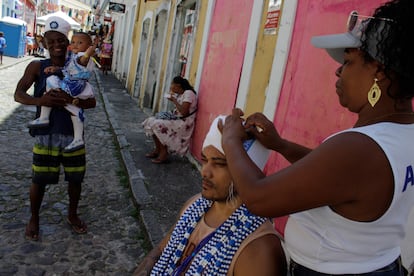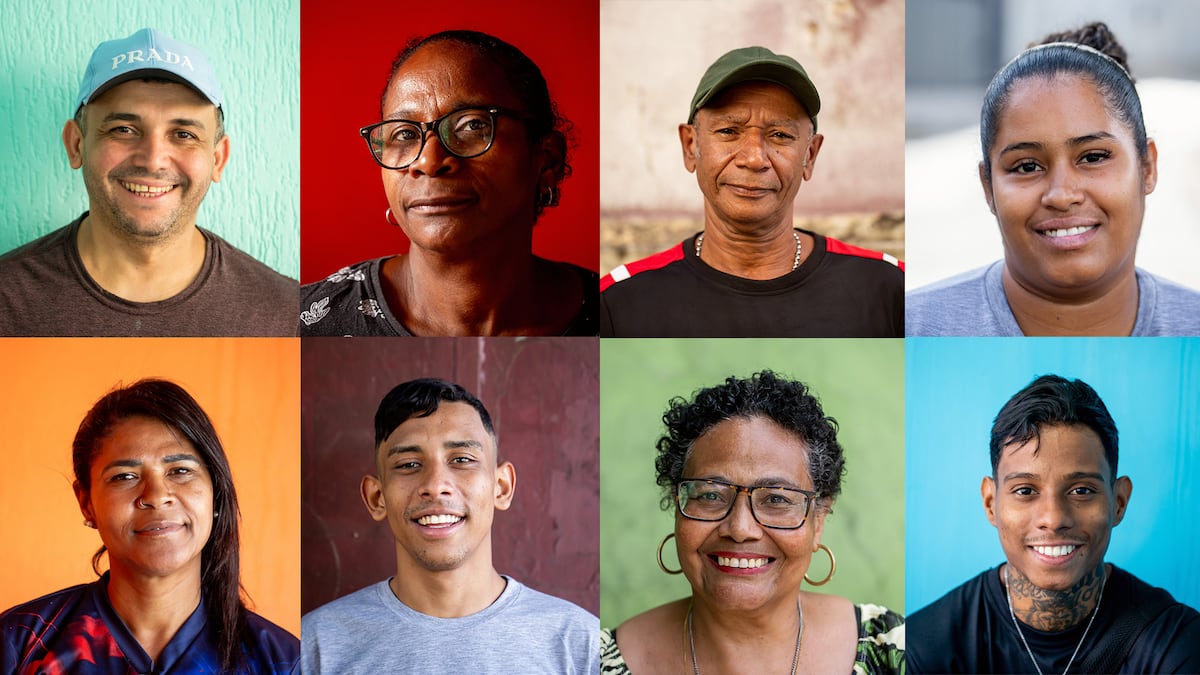It’s often said that the Brazilian passport is the most coveted among forgers because any citizen in the world can pass for a Brazilian: from Pelé‘s dark complexion to Gisele Bündchen‘s Germanic features. The intermingling of Indigenous populations, early colonizers, enslaved Africans, and waves of European immigrants in the 19th and 20th centuries created a mestizo society of enormous genetic diversity, but one that has been little researched. Now, a study published in the journal Science by a team of Brazilian scientists has discovered more than 8.7 million previously undocumented genetic variants, more than 30,000 of which could affect the health of the population.
The enormous diversity of variants was found in newly generated complete genome sequences from more than 2,700 Brazilians who participated in the study over the past five years. One of the study’s authors, renowned geneticist Lygia V. Pereira of the University of São Paulo, explains by phone that the study fills a gap in the field of genetics, where data on white European populations predominate. “The fact that we are sequencing the genomes of a population with many African and quite a few Indigenous ancestors is what allows us to describe millions of genetic variants that had not yet been described worldwide,” she says.
Brazil, with over 200 million inhabitants, is the result of some of the most profound population movements in history: the 10 million Indigenous people who lived on its territory at the time of Portuguese colonization were joined by five million enslaved Africans brought by force. Later, between the 19th and 20th centuries, the authorities encouraged European immigration to “whiten” the country. Around five million Italians, Germans, and Spaniards, mainly, settled in the south and southeast of Brazil. There were also strong waves of emigrants from Lebanon, Syria, and Japan (São Paulo is home to the largest community of Japanese descendants in the world).

Geneticist Pereira emphasizes that, unlike other countries that are also quite diverse, such as the United States, where there were strict segregation policies, in Brazil the population was intensely mixed. Of the more than 2,700 Brazilians analyzed, all had Indigenous, European, and Black African traits. The only exception were 10 residents of São Paulo with almost 100% East Asian ancestry, possibly due to the relatively recent Japanese immigration.
Throughout history, this miscegenation has been described as the greatest attribute of “Brazilianness” and has given rise to myths that Brazil was a country of “racial democracy,” where three races (Black, white, and Indigenous) coexisted in peace and harmony. Although it is not the central focus of the study, the findings of the team that worked on it help dismantle this idea and reveal the extent to which this mix was, for a long time, the result of violence. For example, the vast majority of Y chromosome (male) lines are of European descent (71%), while the majority of mitochondrial (female) lines are of African (42%) or Indigenous (35%) origin. “This pattern is likely the result of a historical asymmetrical union between European men and Indigenous and African women,” the study says, referring to the rape of women from these communities by colonizers and the higher mortality rate among enslaved men and Indigenous peoples.

One of the study’s main discoveries is the 36,637 “rare and potentially harmful” variants, which are more common in individuals of African or Indigenous descent. This is a first step toward studying how genetics can predispose people to certain diseases, Pereira says. “Now we’ll begin to see what impact these variants have on Brazilian health. For example, we know the genetics of breast cancer and the genetic variants that increase the chances of developing breast cancer based primarily on studies of white populations. Now we need to know if there are variants in other populations that also impact this risk.”
The study is part of the Genomas Brasil program, which the Brazilian Ministry of Health launched five years ago with the goal of sequencing the complete genomes of 100,000 Brazilians. The long-term goal is to implement so-called precision medicine in public health, to choose safer and more effective treatments and detect the likelihood of developing certain diseases earlier.
Sign up for our weekly newsletter to get more English-language news coverage from EL PAÍS USA Edition







Comentarios